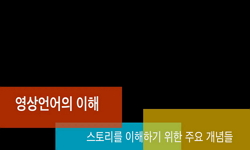This paper supports the hypothesis that the forms that modern language assume are constrained by the need to represent externally, a wholly mind- internal Narrative of Thought. Beginning with an overview of research into the role of narrative in human...
http://chineseinput.net/에서 pinyin(병음)방식으로 중국어를 변환할 수 있습니다.
변환된 중국어를 복사하여 사용하시면 됩니다.
- 中文 을 입력하시려면 zhongwen을 입력하시고 space를누르시면됩니다.
- 北京 을 입력하시려면 beijing을 입력하시고 space를 누르시면 됩니다.


Language evolution, narrative and the nature of cognition = Language evolution, narrative and the nature of cognition
한글로보기https://www.riss.kr/link?id=A108000472
-
저자
( Andrew Feeney ) (Northumbria University) ; ( Rachel Edwards ) (Northumbria University)
- 발행기관
- 학술지명
- 권호사항
-
발행연도
2021
-
작성언어
-
- 주제어
-
등재정보
SCOPUS,KCI등재,ESCI
-
자료형태
학술저널
-
수록면
488-540(53쪽)
- DOI식별코드
- 제공처
- 소장기관
-
0
상세조회 -
0
다운로드
부가정보
다국어 초록 (Multilingual Abstract)
This paper supports the hypothesis that the forms that modern language assume are constrained by the need to represent externally, a wholly mind- internal Narrative of Thought. Beginning with an overview of research into the role of narrative in human culture, we go on to trace the trajectory of language evolution in relation to human cognition. We note the behavioural innovations that occurred less than 2 million years ago and argue that they arose from a greater degree of cooperation than any previous hominin species had displayed, and led to the emergence of intentional communication in the form of protolanguage. However, this stage in hominin cognition was not indicative of a qualitatively distinctive mode of thought, being grounded in subitizing, and that this is reflected in the cultural stasis that characterises the subsequent million years. The evolution of a uniquely human form of cognition, a System 2 type of thinking in Dual Processing Theory, is a more recent event which enabled the creation and retention of narrative structures through the recursive embedding of simple propositions. This new type of thinking and its external representation in linguistic narrative are seen to coevolve with aspects of autobiographical memory, a sense of self, and Theory of Mind.
동일학술지(권/호) 다른 논문
-
In the stillness of mathematical logic, is there a place for motion?
- 서울대학교 인지과학연구소
- ( F. Hadi Madjid )
- 2021
- SCOPUS,KCI등재,ESCI
-
Using A Real-time Word-Naming Technique to Trace Bilingual Children’s Vocabulary Development
- 서울대학교 인지과학연구소
- ( Hyunwoo Kim )
- 2021
- SCOPUS,KCI등재,ESCI
-
Using Metaphors to Explore Iranian Medical Sciences Students’ Conceptions of Learning English
- 서울대학교 인지과학연구소
- ( Iman Alizadeh )
- 2021
- SCOPUS,KCI등재,ESCI
-
중국어의 사실성: 사실성 동사 대 사실성 교체 동사 jide ‘기억하다’
- 서울대학교 인지과학연구소
- ( Youjeong Oh )
- 2021
- SCOPUS,KCI등재,ESCI




 KCI
KCI KISS
KISS







